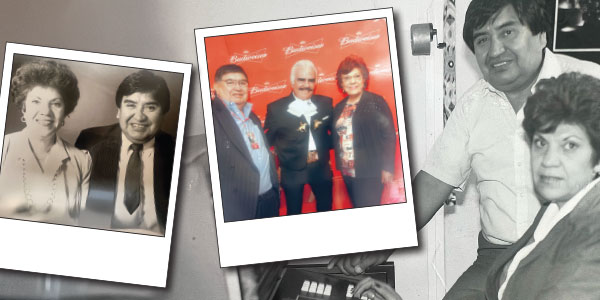
Many people ask me why they can’t forgive an infidelity from their partners, let alone, forget one. We know an infidelity rattles your ground in the same way a suicide from a loved one does: you ask yourself why, you get depressed and it affects your self-esteem. But if the couple seeks help and admits “their part of the cake,” they can continue the relationship, and, sometimes, the couple grows to overcome the conflict.
Undoubtedly, there are people who can’t forget, let alone forgive, an infidelity. In my consultations, I have dealt with women and men who, even years after the infidelity, continue with the subject making life impossible for their partners. And in other more serious cases, the reproach may persist even to death.
I’m not trying to justify infidelity nor am I defending it. Infidelity is as old as earth, and in fact, every day it has more followers despite the terrible consequences, not only for those directly involved, but also for those indirectly involved as well, as is the case of children of a relationship.
But why is it so hard to forget an infidelity?
People who were abandoned by a parental figure can’t handle “another abandonment” and all the anger they feel against the parent or parents unload over their partner who cheats on them. As we family and couples therapists know, these people always “choose” someone similar to their parents and repeat the pattern wanting to overcome it or wanting to punish that father or mother.
On the other hand, it is common that jealous people are more affected by infidelity. These people might have grown up in an environment of competition and comparisons with siblings, and that’s like having an open wound that has never healed, and one that, on top of that, is “thrown salt” at to relive past pain and jealousy.
That person probably grew up in a home where their father or mother lived suffering because of the infidelity of one of them, and even entered a love triangle because of them. For instance, I know of cases of mothers that send their daughters to “search for their fathers and confirm whether they were with another woman.” And I also know of cases of fathers who take their kids with them to know the lover, putting them in a loyalty conflict: if I tell mom, I fail dad; and if I don’t tell her, I fail mom.
Logically, there are many possibilities. What is clear is that emotional wounds that don’t “close or heal,” eventually rot.
Unless your partner is a sex addict or a ladies man, in every infidelity case, both people are responsible, even if the cheater is more responsible.
When two people are OK, there’s no room for a third. And even if then there is any threat of someone sneaking around, take good care of the holes in your cardboard to prevent others from singing bingo!
Cuando dos personas están bien, no cabe una tercera
Muchas personas me preguntan por qué no pueden perdonar una infidelidad de sus parejas y mucho menos olvidarla. Sabemos que una infidelidad te mueve el piso como lo mueve el suicidio de alguien que amas: te cuestionas todo, te deprimes y se afecta tu autoestima. Pero si la pareja busca ayuda y admite “su parte en este pastel”, puede continuar la relación y, en ocasiones, la pareja crece al superar este conflicto.
Indudablemente, existen personas que no pueden olvidar, y mucho menos perdonar, una infidelidad. En mis consultas he tratado con mujeres y hombres que incluso muchos años después de la infidelidad, siguen con el tema haciéndole la vida imposible a sus parejas. Y en otros casos más graves, el reproche puede persistir incluso hasta la muerte.
No estoy tratando de justificar la infidelidad y tampoco la estoy defendiendo. La infidelidad es tan vieja como el planeta Tierra, y de hecho cada día tiene más adeptos a pesar de las terribles consecuencias, no solo para los implicados directos, sino para los indirectos, como es el caso de los hijos de una relación.
Pero, ¿por qué es tan difícil olvidar una infidelidad?
Las personas que fueron abandonadas por una de sus figuras paternas no resisten “otro abandono” y toda la rabia que sienten contra el padre o los padres la descargan sobre la pareja que las traiciona. Como sabemos los terapeutas de parejas y familias, esas personas siempre “eligen” a alguien parecido a esos progenitores y repiten ese patrón queriendo superarlo o queriendo castigar a ese padre o madre.
Por otro lado, es común que a la gente celosa le afecte más la infidelidad. Estas personas pudieron haber crecido en un ambiente de competencia y comparaciones con los hermanos, y eso es como tener una herida abierta que nunca ha cicatrizado y a la que, encima, se le “aplica sal” como para revivir antiguos dolores y celos.
Esa persona probablemente creció en un hogar donde su padre o su madre vivían sufriendo por la infidelidad del compañero, y hasta entró en el triángulo por ellos. Por ejemplo, conozco casos de madres que mandan a sus hijas a “buscar a su papá y confirmarles si estaba con la otra”. Y conozco también casos de padres que llevan a sus hijos a conocer a su amante, metiéndolos en un terrible conflicto de lealtad: si le cuento a mamá, le fallo a papá; y si no le cuento, le fallo a mamá.
Lógicamente, son muchísimas las posibilidades. Lo que sí está claro es que las heridas emocionales que no se “cierran o curan”, con el tiempo se pudren.
A menos que su pareja sea un adicto al sexo o un donjuán, en toda infidelidad ambos son responsables, aunque el infiel sea el más responsable.
Cuando dos personas están bien, no cabe una tercera. Y si aun así existe alguna amenaza de que alguien se cuele por ahí, cuide bien los agujeros de su cartón para evitar que otro le cante ¡bingo!










